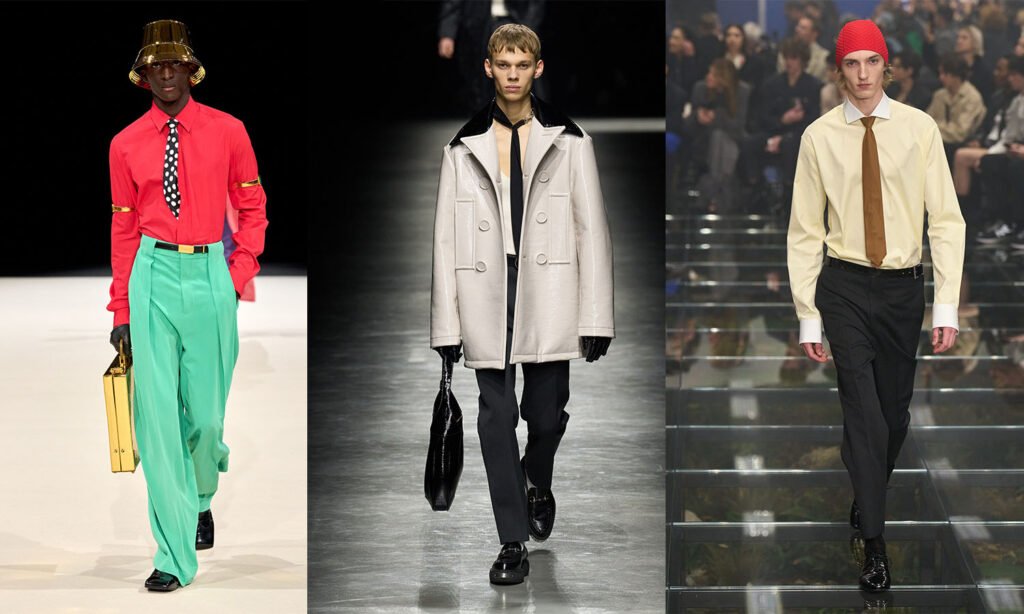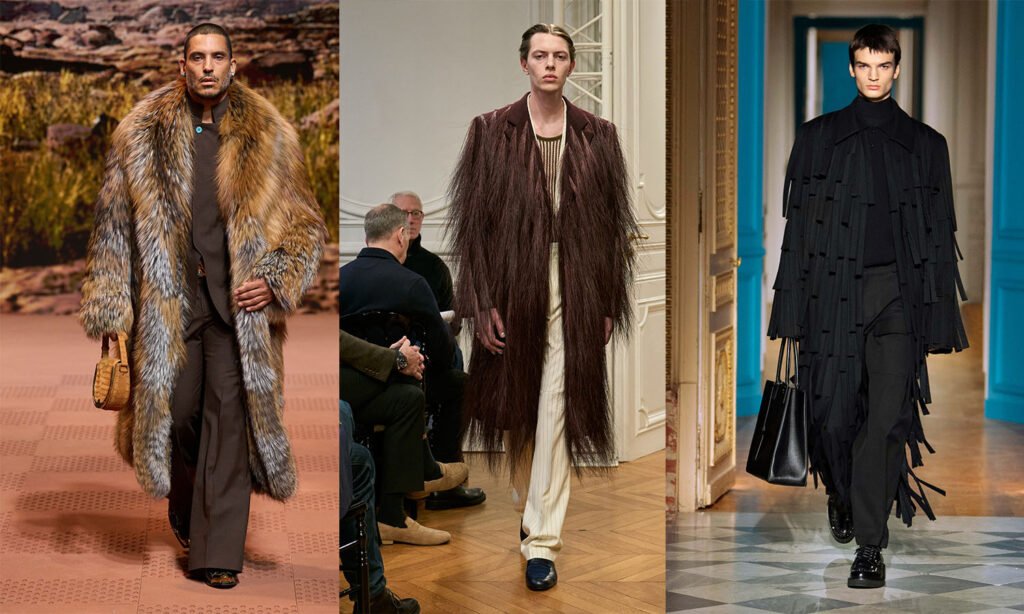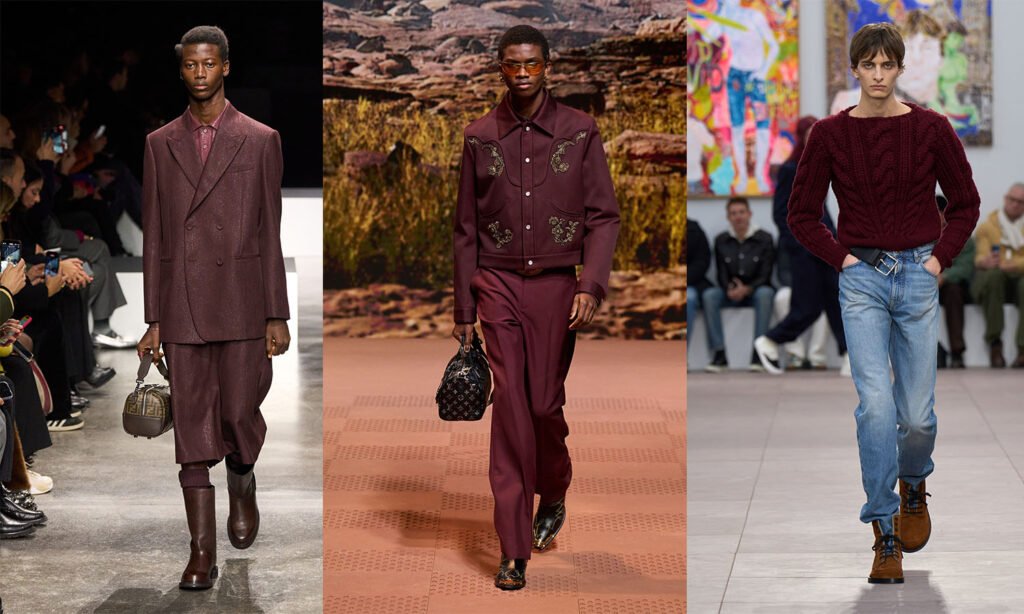Men’s Fashion Week has concluded after a whirlwind of shows in Milan and Paris. This season marked a noticeable shift from the dominance of streetwear in recent years, ushering in a revival of classic, contemporary, and traditional menswear styles.
As always, the event featured groundbreaking moments for the industry. Sabato De Sarno’s debut Gucci menswear collection opened the week, presenting a reimagined concept of masculinity that resonated throughout the season. From Pharrell’s Wild West-inspired vision for Louis Vuitton to Kim Jones’ cavalier-inspired designs for Dior at the British Royal Ballet, the collections explored diverse interpretations of masculinity by revisiting the essence of traditional menswear while embracing innovation.
Below, we explore six standout trends defining Men’s Fall/Winter 2024.

After a period of decline and a long history of being seen as uncomfortable, the necktie has returned as a standout accessory in men’s fashion. Inspired by the recent office-core trend in women’s wear, ties have transitioned from a formal wardrobe staple to a trendy must-have accessory


© 2024 All Rights Reserved

To provide the best experiences, we use technologies like cookies to store and/or access device information. Consenting to these technologies will allow us to process data such as browsing behavior or unique IDs on this site. Not consenting or withdrawing consent, may adversely affect certain features and functions.